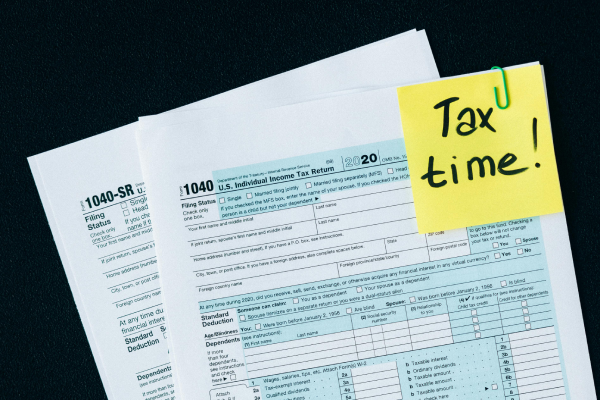Taxes on real estate in Bali

Bali attracts foreign investors with its mild climate, developed infrastructure, and growing rental market. However, the Indonesian tax system can confuse even an experienced buyer. Let’s figure out what payments a foreigner should expect at each stage — from acquiring property to receiving income.
This guide primarily focuses on the Hak Sewa (Leasehold) scheme, as the most popular option.
Taxes when buying real estate
Acquisition tax (BPHTB)
The main tax when purchasing property is BPHTB (Bea Perolehan Hak atas Tanah dan Bangunan), which amounts to 5% of the taxable base (NPOP). It is paid once by the buyer at the time of signing the contract with a notary.
NPOP (Nilai Perolehan Objek Pajak): Tax base. It is the higher of the two values:
The price stated in the sale and purchase agreement.
The fair market value according to the tax authority’s appraisal (NJOP - Nilai Jual Objek Pajak).
Value-added tax (VAT) — (Pajak Pertambahan Nilai (PPN))
This tax applies to property purchased directly from a developer. In practice, it is usually paid by the buyer. Almost always, 12% is already included in the final price of apartments or villas.
Until the end of 2025, many properties priced up to 300,000 USD are eligible for government tax incentives.
Luxury tax
An additional tax applies to residential property priced over 30 billion rupiah (about 2 million USD) and non-residential property over 10 billion rupiah (600,000 USD). It is charged at 20% of the amount exceeding the threshold.
Other payments:
Notary services (PPAT)
This is not a tax, but a mandatory transaction cost that cannot be avoided. It is usually paid by the buyer unless otherwise agreed. Approximately 1% of the property value, but decreases as the property price increases.
Example:
A client bought an apartment in a new residential complex from a developer for 300,000 USD under a leasehold agreement. He must pay 12% VAT + 1% to the notary and 5% for title transfer.
Thus, the total purchase amount including taxes will be about 354,000 USD.
Developers often indicate the final price (including taxes) — this detail should be clarified with the broker.
Taxes after purchase and when renting out
The property is bought, documents are signed, and keys handed over to the owner. What comes next? Depending on the purpose of the purchase, the taxes payable to the kingdom’s treasury will vary.
Annual land tax (PBB)
All owners pay an annual tax Pajak Bumi dan Bangunan: from 0.1% to 0.5% of the appraised NJOP value (Nilai Jual Objek Pajak), which is roughly equivalent to the cadastral value in CIS countries. Usually, NJOP is slightly lower than the market price.
Example:
A villa in Ubud with an NJOP of 1.5 billion rupiah at a rate of 0.3%:
Annual tax: 1,500,000,000 × 0.003 = 4,500,000 rupiah (about 280 USD).
This is a mandatory payment regardless of whether the property is rented or not.
Rental income tax
For individuals
Rates depend on status:
Tax residents (living in Indonesia for more than 183 days): progressive rate from 5% to 35%
Non-residents: fixed rate of 20% of gross income
For legal entities (corporate tax)
If the property is owned by a company, income is taxed at 22%.
Short-term rentals
For daily rentals via Airbnb, a 10% tax on revenue applies, paid monthly.
Critically important: a foreigner cannot legally rent out property under their personal name.
It requires:
An Indonesian company PT PMA
A hospitality business license
A company tax number
Tax on sale
For foreigners, the rate is 5% of the transaction value or the NJOP tax assessment (whichever is higher). The rate may be reduced if a double taxation avoidance agreement exists between the countries.
Tips
- Use tax treaties. Indonesia has signed 71 double taxation avoidance agreements — check if your country is among them.
- Verify NJOP in advance. The appraised value affects tax amounts — it can be checked online or at a land agency.
- Choose the ownership structure wisely. For personal use — leasehold, for commercial rental — PT PMA.
- Keep all documents properly. Tax payment receipts will be needed upon sale.
Conclusions
- When buying: 5% BPHTB + 11% VAT (for new builds) + 1% notary fee
- Annually: 0.1–0.5% land tax
- When renting out, tax depends on the presence of a legal entity or resident status and rental duration: from 5% to 35%
- When selling: 5% of the value
Bali remains one of the most attractive destinations for investment. The tax burden here is lower than in Western countries, and the rental market has been growing steadily for a long time. The key is to structure the deal correctly, verify all documents, and comply with the law. In case of any questions or doubts, it is always best to consult a professional broker. Then the paradise island will become not only a place of rest but also a source of stable income.